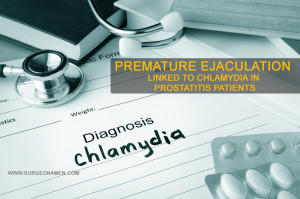Gonorrhea
A contagious disease, Gonorrhea is transmitted through sexual contact or infected body fluids. The infection can spread during childbirth. People with more than one sex partners are at a higher risk of contracting the bacterial infection.
Spread by bacterium Neisseria gonorrhoeae, which grows in mucus membranes, gonorrhea bacteria affects hundreds of thousands of people in the United States. The bacteria breed in warm, moist areas of the reproductive tract of women, affecting the uterus, cervix, urethra and fallopian tubes. In men, the bacteria survive in the urethra and can grow in the throat, mouth, and anus in both men and women.
Sexually active teenagers are at the biggest risk of gonorrhea infections.
Gonorrhea Symptoms
Unfortunately, symptoms do not show up in all infected people. This could cause a delay in treatment. Often symptoms may take up to 30 days to show up.
Gonorrhoea in Women
In women, gonorrhea symptoms are so mild that they remain unnoticed.
- Burning when urinating
- Vaginal discharge (greenish yellow or whitish)
- Lower abdominal or pelvic pain
- Burning in the throat
- Bleeding between periods
- Red, itchy eyes
- Spotting after intercourse
- Swollen glands in the throat
Since the symptoms are similar to certain other sexually transmitted infections, it is best to consult a doctor for proper diagnosis and treatment.
Gonorrhea in Men
The infection symptoms may take anywhere between 2 and 14 days to appear. Some of the most common signs of gonorrhea in men include:
- Painful/swollen testicles
- Burning sensation during urination

- Discharge from penis
- Painful testicles
- Swelling in the testicles
- Burning in the throat
- Swollen throat glands
Gonorrhea Diagnosis
To diagnose gonorrhea, the medical practitioner will need a sample of fluid from the male urethra and female cervix. The doctor may give you a throat or anal culture to determine the extent of throat or anal infection. A urine sample may also be required to find the presence of bacteria.
Gonorrhea Treatment
An oral or injectable antibiotic may be administered as a treatment for gonorrhea infection. It is important that steps are taken to prevent further spread of the disease. If left untreated, the infection can cause serious problems in men and women. While women face the risk of getting pelvic inflammatory disease that could damage fallopian tubes, it could cause epididymitis in men.
Infected women are at a higher risk of infertility if the condition is not treated in a timely manner. There is also a high risk of ectopic pregnancy, which poses a threat to the life of both the mother and the fetus. In pregnant women, gonorrhea can cause spontaneous abortion. There is also a risk of premature delivery. However, timely treatment will lessen the risk of complications.
In men, epididymitis can cause infertility. It is a condition in which men experience extreme pain in the testicles. If left untreated, it can make a man infertile and affect the prostate, causing scarring of the urethra and thus resulting in urination problems.
It is best to go for timely gonorrhea treatment to prevent the risks of other serious conditions and diseases, including HIV. Use protection during intercourse to prevent the risk of contracting sexually transmitted infection.
References:
1- www.webmd.com/sexual-conditions/guide/gonorrhea?page=3
2- www.cdc.gov/std/gonorrhea/stdfact-gonorrhea.htm

